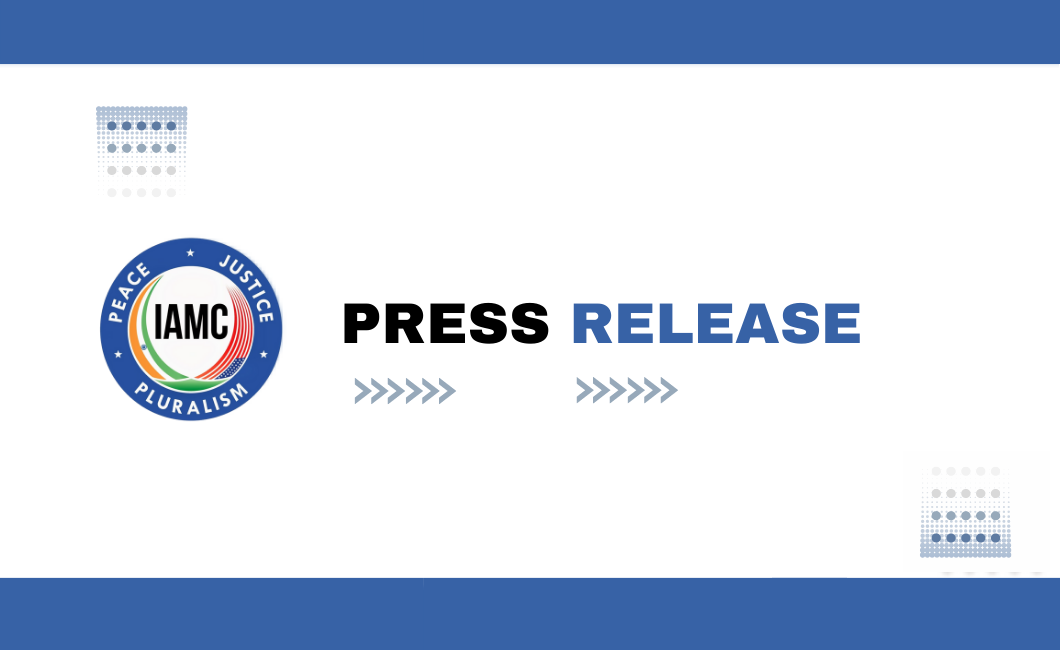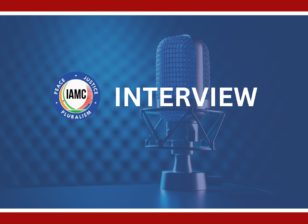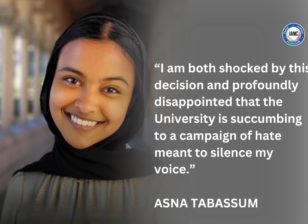Sharp decline in India’s press freedom ranking in Reporters Without Borders report is deeply concerning: IAMC
Indian Americans say US must ask India to stop persecuting journalists
Washington, DC (May 3, 2022) — The Indian American Muslim Council, a US-based nonprofit dedicated to peace, pluralism and social justice, has expressed deep concern at the sharp decline of India’s press freedom ranking in the 2023 report of Reporters Without Borders (RSF), one of the world’s leading press freedom watchdogs.
“For the sake of democracy, the United States must use its diplomatic power to compel India to end its persecution of journalists,” IAMC executive director Rasheed Ahmed said on Wednesday.
In its report released earlier today from its headquarters in Paris, France, the RSF placed India at 161st place among 180 countries, placing it 11 positions below its rank last year. This is the fourth consecutive year in which India has fallen sharply in RSF’s rankings. Four years ago, India was placed 140th.
Press freedom in India is now worse than in authoritarian regimes in Afghanistan, Libya, and the United Arab Emirates. It ranks a mere 19 spots above the dictatorship of North Korea, the lowest ranked in this report. RSF directly attributed India’s drastic decline to Narendra Modi’s ascension to Prime Minister in 2014.
Ahmed said the rapid decline of India’s free press is of grave concern to Indian Americans, adding, “Democracy dies in darkness, and the loss of India’s free press will bring dark days. As the report makes clear, this attempt to strangle the free press is a political strategy pursued by Modi and his Bharatiya Janata Party. They want to eliminate critical voices and make India a Hindu supremacist state.”
According to the RSF report, “The Indian press used to be seen as fairly progressive but things changed radically in the mid-2010s, when Narendra Modi became prime minister and engineered a spectacular rapprochement between his party, the BJP, and the big families dominating the media.”
The report describes how Modi’s politically-engineered media monopoly — which has included the buyout of national TV network NDTV by disgraced industrialist and Modi crony Gautam Adani — has created a climate in which critical reporting on the Bharatiya Janata Party (BJP) and other ruling factions has become perilous and in some cases impossible.
“Under the guise of combatting Covid-19,” the report notes, “the government and its supporters have waged a guerrilla war of lawsuits against media outlets whose coverage of the pandemic contradicted official statements. Journalists who try to cover anti-government strikes and protests are often arrested and sometimes detained arbitrarily.”
The propagation of Hindu Nationalist (Hindutva) ideology also bears central responsibility for the declines in India’s press freedom, according to the report.
“Supporters of Hindutva, the ideology that spawned the Hindu far right, wage all-out online attacks on any views that conflict with their thinking. Terrifying coordinated campaigns of hatred and calls for murder are conducted on social media, campaigns that are often even more violent when they target women journalists, whose personal data may be posted online as an additional incitement to violence,” the report states.
As a result of this persecutory climate, 3 to 4 journalists are killed on average each year in India, making it one of the most dangerous places for journalists in the world. The report also notes how India’s Hindu, upper-caste, male-dominated media landscape has excluded women and countless minorities from media representation, while permitting the propagation of dangerous Islamophobic conspiracy theories, including blaming Muslims for the spread of COVID-19.
RSF’s findings directly refute claims from US Assistant Secretary of State for South and Central Asia Donald Lu, who recently stated, “You have India as a democracy in part because you have a free press that really works.”
“RSF’s latest report should be a wake-up call for US and global leaders who continue to maintain the illusion that the free press thrives in India,” said IAMC Executive Director Rasheed Ahmed. “The Modi regime’s persecution of journalists, and his crony-engineered media monopoly is not only a blow to Indian democracy, but introduces an element of extreme instability into international relations.”
The report also notes how “Kashmiri reporters are often harassed by police and paramilitaries, with some being subjected to so-called “provisional” detention for several years.” Kashmir and Punjab continue to be routinely subjected to sweeping internet blackouts that impede millions from accessing media, as well as other critical information services.
On the issue of the security of journalists, India fared even worse, placing at 163 in 180 countries.
“With an average of three or four journalists killed in connection with their work every year, India is one of the world’s most dangerous countries for the media,” the report said. “Journalists are exposed to all kinds of physical violence including police violence, ambushes by political activists, and deadly reprisals by criminal groups or corrupt local officials.”
The report called out Hindutva, the ideology of Hindu nationalism, saying that its supporters “wage all-out online attacks on any views that conflict with their thinking. Terrifying coordinated campaigns of hatred and calls for murder are conducted on social media, campaigns that are often even more violent when they target women journalists, whose personal data may be posted online as an additional incitement to violence.
To speak with IAMC experts on crackdown on press freedom in India, contact: media.info@iamc.com




